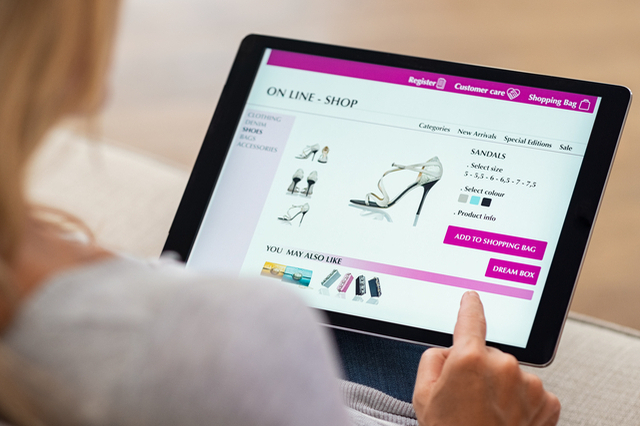
By Steph Briggs, Ecom Expert & Copy Queen at The Retail Champion
Another day, another blog pitting Shopify against WordPress.
Look, I get it. Comparison blogs are great for SEO. But most of them are written by developers trying to flog you their favourite platform, not people who’ve ever had to juggle supplier delays, low footfall, or three customer emails before their morning brew.
So here’s a better question:
What do you actually need from your ecommerce setup?
Because unless you’re building some award-winning, media-heavy, custom-coded digital experience (which, let’s be honest, you’re probably not), you don’t need a 5,000-word dev argument. You need something that works — for your business, your customers, and your sanity.
Let’s have a look at what really matters.
What Retailers Really Need From a Website
Whether you’re an indie shop, a growing brand, or a small team with big dreams, your ecommerce platform should:
✅ Be easy to update without calling a developer every five minutes
✅ Help you manage stock, orders, and shipping without the spreadsheets of doom
✅ Load fast, especially on mobile
✅ Look good and actually convert
✅ Support SEO, social, email and analytics tools
✅ Not fall over the second you launch a promotion
✅ Scale as you grow – without growing your tech headaches

So… Why Do So Many Retailers Choose Shopify?
Because it’s simple. Because it’s solid. Because it’s made for selling.
💡 Shopify handles payments, product listings, customer comms, VAT, shipping rates and abandoned carts out of the box.
💡 You get a clean dashboard, a mobile app for packing orders on the go, and templates that don’t look like they were last updated in 2011.
💡 Need subscriptions, bundles, gift cards, or pre-orders? There’s an app for that. Actually, hundreds.
💡 SEO tools, email integrations and analytics? Tick, tick, tick.
⚠️ The catch? You’ll pay a monthly fee (starting from £25) and might need to pay extra for apps. But honestly? The time and stress it saves is usually worth it.
And WordPress + WooCommerce? Still a Good Option?
Yes – if you’ve got the right support. WordPress gives you more flexibility. It’s brilliant for content-led sites with heavy blogs or media (think: magazines, training, or online learning). WooCommerce adds the ecommerce layer. But:
⚠️ You’ll need to stay on top of plugin updates and site security.
⚠️ You’ll need someone tech-savvy to troubleshoot when things go wonky.
⚠️ It’s easy to break something if you’re not careful – or worse, get hacked.
WordPress is brilliant when it’s set up and managed properly. But if you’re looking for something “set it and forget it” – or don’t have time for weekly plugin updates, or are expecting the sales team to update and manage it – it’s not the low-maintenance option.

Real Talk: When Agencies Push Their Own Preferences
We recently wrote a proposal for a brilliant mid-sized high street jeweller. Their incumbent agency was firmly in the WordPress camp — not because it was right for the client, but because it’s all they do.
They told the client Shopify was too restrictive, too template-driven, not “bespoke” enough. What they didn’t mention? They’ve never built a Shopify store in their lives.
The result? A confused and anxious client who was left questioning their instincts. Because let’s be honest — if you’re not a tech expert, how are you meant to separate fact from sales pitch?
Here’s the truth: your platform should fit your business. Not the other way around. And if your agency can’t offer options based on what works best for you, it might be time for a new agency.
The Hidden Costs Nobody Talks About
You know what really costs you money?
🚨 A broken checkout that nobody notices until it’s too late
🚨 A product page with no SEO so it never gets seen
🚨 A click-and-collect option that never actually works
🚨 A “pretty” homepage that doesn’t actually convert
It’s not about the platform. It’s about the performance.
If your site doesn’t load fast, guide the shopper clearly, and make them want to buy, it doesn’t matter what tech sits behind it.
💡 When the Tech Doesn’t Talk to Each Other…
This is where it gets tricky: if you’re purely ecommerce, Shopify all the way. But if you’re a multi-location business with EPOS systems already in place — and unified stock management is critical — you’ve got decisions to make. Shopify POS might be the smartest move if you go all in. In most cases, there’s an integration. But if your existing systems aren’t compatible, and a custom integration is costly or clunky, WooCommerce might edge it — with the caveat that you’ll be tied to your developer for life, with on-costs to match.
Bottom line? Don’t go with what your agency prefers. Go with what your business actually needs — now, and in three years’ time.

Ask These Questions Before You Choose
- What do I sell — and how do people want to buy it?
- How often will I change stock, pricing, or delivery options?
- Can I (or my team) manage this day-to-day without a developer?
- What’s my plan for SEO, email, and customer retention?
- Am I building for now — or where I want to be in 12 months?
- Does my inventory management integrate or is there an app for that?
My Honest Advice as a Retail Consultant
🛒 Shopify is ideal for product-first businesses. If you want a sleek, simple, powerful store that’s easy to manage and hard to break, start here.
🧠 WordPress + WooCommerce is best for content-first brands, or hybrid models (training + product, membership + merch). But you’ll need dev support.
⚠️ Neither platform will fix a bad strategy. Or sell boring products. Or fix badly written copy. Or turn a half-baked launch into a money-spinner. But the right one will make your life 10x easier.
And Finally — Don’t DIY Your Way to Disaster
You wouldn’t build a shop floor with no walls. Don’t build a website with no structure.
If your ecommerce setup is a bit… clunky (or non-existent), and your product pages make you cringe, let’s fix that.
I help retailers turn their online shops into conversion machines — with sparkling copy, smart SEO, and platforms that actually work.
Because a website shouldn’t just look good. It should sell.

Steph Briggs is an ecommerce consultant and copywriter with one mission: to help independent retailers build stores that work — for them, not just for their developers. She’ll die on the hill to get you the right platform, the right setup, and the words that actually convert. With a sharp eye for strategy and a whole lot of heart, Steph brings honesty, clarity, and a touch of sass to every project. Opinionated? Yes. But always on your side. No shortcuts. Just what’s best for your business.
See more about Steph and the rest of the team on our Meet The Team page.
If you’ve enjoyed reading this you may also find this article of interest: What is SEO? And why Retailers Should Care


